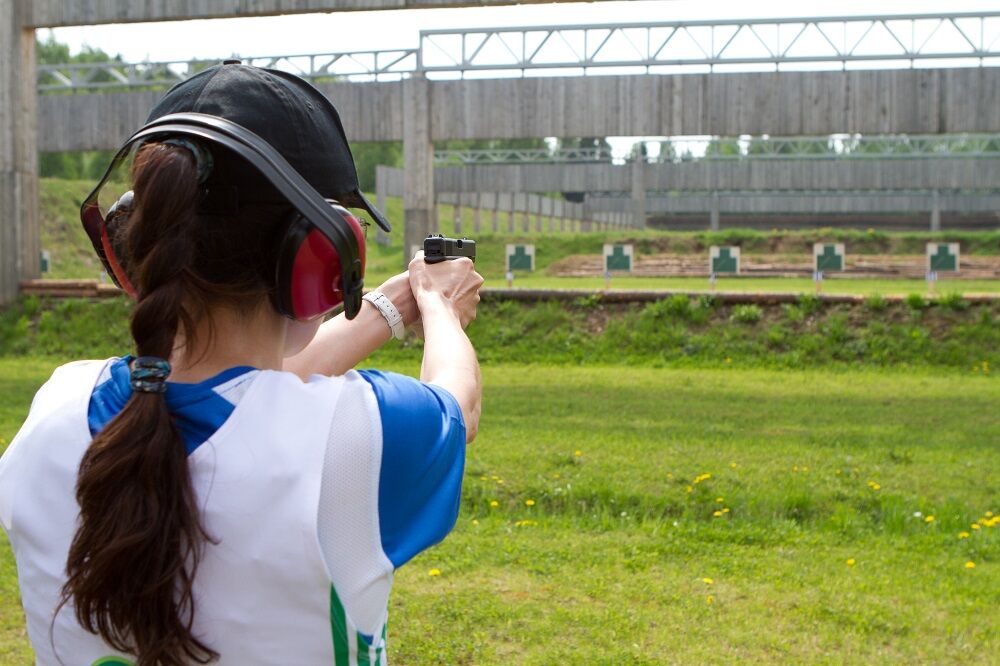(personal underlines - silent reflexions)
Meet the queer people taking up arms as Donald Trump moves back into the White House
Members of groups like the Pink Pistols and Rainbow Reload prepare for the worst.

With two weeks to go before President-elect Donald Trump is inaugurated for a second term, queer people around the country are purchasing guns, joining gun groups, and taking up arms in preparation for a worst-case scenario that may or may not come to pass.
“This country is not, I wouldn’t say, on very solid footing,” nonbinary gun owner Doug told the Philadelphia Inquirer recently. “As a Boy Scout, I’d rather be prepared.”
Doug is among a growing number of LGBTQ+ people going on offense in the face of what they fear will be a worsening climate for queer people under an administration openly hostile to them.
“We’re not looking to arm up and storm the Capitol,” one gun owner said. “We just don’t want to be put in concentration camps.”
Following a national election that saw $215 million spent attacking the trans community, as well as bans on healthcare for trans people, a continuing crusade to erase LGBTQ+ identity from schools and libraries, and increases in violence directed at sexual minorities, groups like the Pink Pistols, Rainbow Reload, and the Socialist Rifle Association, whose motto is “We Keep Us Safe,” are growing in popularity among queer people fearing for their lives.
A spokesperson for the national Liberal Gun Club said his group has received thousands of training requests since the election, more than in all of 2023. He estimates about a quarter were from LGBTQ people.
The head of the Delaware Valley chapter of the Pink Pistols, a longtime gay gun group with the slogan “Armed Gays Don’t Get Bashed,” said he’s received a sudden flurry of emails inquiring about gun training.
“There’s definitely a feeling among a lot of LGBT individuals: ‘If I can’t protect myself, who will?’” said Madeline Shearman, a trans woman based in Pennsylvania who runs a “2A social group” devoted to exercising gun rights granted by the Second Amendment. “I feel that way myself.”
“Three months before the election, that’s when the alarm bells started to ring,” said a trans woman and new gun owner who identified by the initial A. to protect her privacy. She bought her first gun on November 2.
“Minorities that are armed are more difficult to legally oppress,” she said. She found peace of mind “in the event of hate crimes or terrorist attacks, knowing that, ‘OK, I’m personally armed and I can protect my property and people that are close to me.’” Now she’s applying for a concealed carry permit in Pennsylvania.
While gun ownership numbers for queer people are hard to come by, a shift in the buying patterns for arms indicates a change over the last four years, a peak for gun purchases. David Yamane, a Wake Forest sociology professor, calls the change “Gun Culture 2.0.”
Twenty-one million background checks were conducted for the sale of a firearm in 2020, a 60 percent rise over the previous year, mostly concentrated among white men, particularly conservative men in rural areas. Four years ago, NBC News found, about 24 percent of Black households owned guns. Now it’s 41 percent. The same percentage of Democratic households now own guns, up from 33 percent in 2004.
Yamane’s research shows that new gun owners are “more female, more racial minority, more urban,” he told the Washingtonian, and it’s likely gun ownership among LGBTQ+ people is more common than in the past.
Those increases accompany a rise in violence directed at the LGBTQ+ community, particularly trans people. A 2021 report from UCLA’s Williams Institute found trans people are more than four times as likely as cisgender people to be victims of violent crime, while one in four trans people say they’ve been physically attacked because of their identity, according to a poll conducted by health-policy research nonprofit KFF and the Washington Post.
The FBI’s tally of hate crimes based on gender identity jumped 32 percent from 2021 to 2022.
Those facts and attacks on women’s bodily autonomy, seen in the 2022 Supreme Court decision overturning Roe v. Wade, catalyzed Lilah, who sees “a rising tide of fascism in this country.” She learned to shoot as a child and had lost interest; encouraged by her partner Rachel, whom she met at a SCOTUS protest, she’s shooting again.
“All the people who want to kill the people I care about have guns,” Rachel says. “So I do, too.”
Last year, more than half of registered voters in an NBC News poll said they live in a household where someone owns a gun.
Sem comentários:
Enviar um comentário